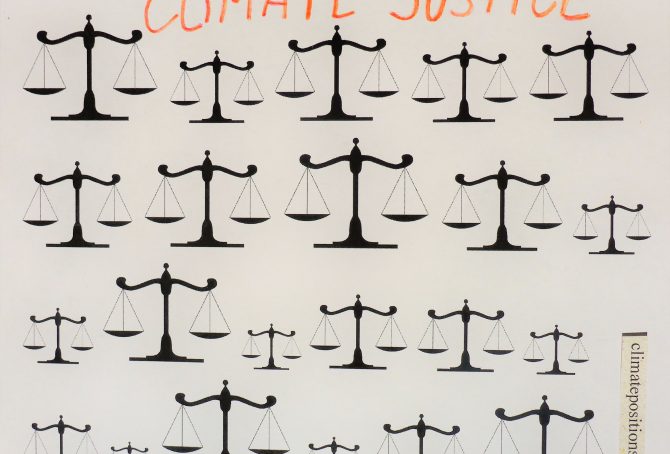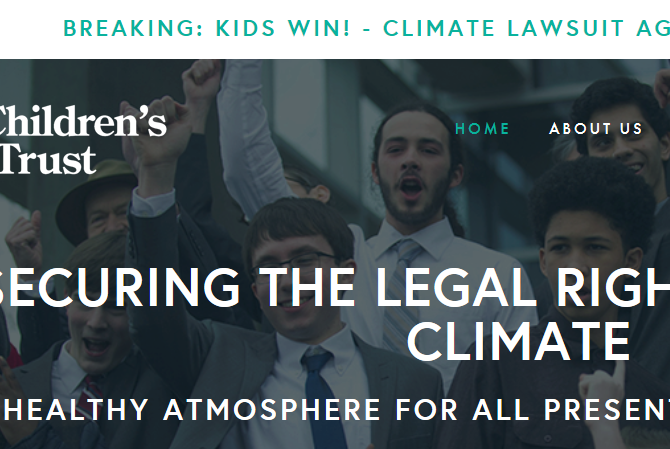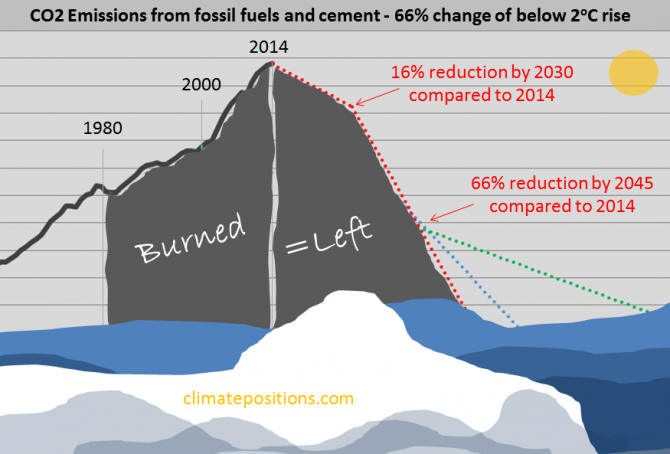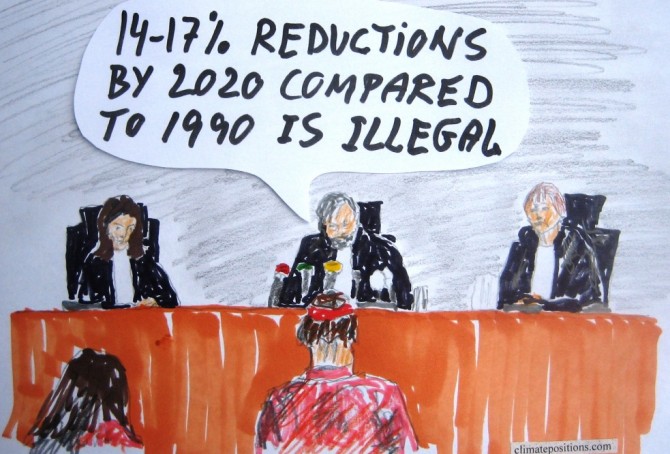Climate Change Litigation Databases (website with more than 1,100 cases)
2018
The website ‘climatecasechart.com‘ by ‘Sabin Center for Climate Change Law at Columbia Law School‘ provides databases of climate change caselaw worldwide. The None-U.S. Cases in the database are organized by country (Jurisdiction or Principal Law) and type of climate change claim. The United States has a separate database providing around three quarters of all 1,113 cases in the databases (which makes sense since the United States is responsible for 33.1% of the ‘Global Climate Debt‘, while populated only by 4.4%). Read the article ‘Venue of last resort: the climate lawsuits threatening the future of big oil‘ (The Guardian, 2017).
Climate change lawsuit against the government of the United States (Our Children’s Trust)
2016
November 10, 2016, twenty-one youth from the United States, age 9 to 20, were legally permitted to file a landmark constitutional climate change lawsuit against the federal government in the U.S. District Court for the District of Oregon. With support from ‘Our Children’s Trust‘, the youth’s complaint asserts that, through the governments affirmative actions in causing climate change, it has violated the youngest generation’s constitutional rights to life, liberty, property, as well as failed to protect essential public trust resources.
Commission on Human Rights of the Philippines accuses Shell, BP, Chevron, BHP Billiton, Anglo American and 42 other carbon companies of breaching people’s fundamental rights to life, food, water, sanitation, adequate housing and self-determination
According to ‘The Guardian’ the Filipino government body ‘Commission on Human Rights of the Philippines‘ have given the world’s largest oil, coal, cement and mining companies 45 days to respond to a ‘legal complaint (pdf, 65 p)‘ that their greenhouse gas emissions have violated the human rights of millions of people living in the Philippines.
The UN Guiding Principles on Business and Human Rights explicitly call on companies to respect human rights, and there are three scenarios in which a company can be hold responsible for adverse impacts on human rights, quote: “(1) it may cause impacts through its own activities; (2) it may contribute to impacts through its own activities, either directly or through some outside entity (government, business, or other); and (3) it may be involved in impacts caused by an entity that is directly linked to its business operations, products, or services.”
The COP21 Paris Agreement: Diplomatic triumph, self-applause … and the carbon budget
2015
The COP21 ‘Paris Agreement’ (31 p), backed by 196 countries, emphasizes the urgent need to address the greenhouse gas emission gap between the aggregate effect of the 187 intended nationally defined contributions (INDCs/pledges) and the “aggregate emission pathways consistent with holding the increase in the global average temperature to well below 2°C above preindustrial levels and pursuing efforts to limit the temperature increase to 1.5°C”. This feverish understatement about the emission gab is clarified in the ‘Synthesis report (UN)’ on the aggregate effect of the pledges. The report says that the aggregate effect of the submitted pledges (INDCs) will bring the global cumulative CO2 Emissions up to around 72%–77% of the remaining carbon budget by 2030 (emitting 100% will leave the planet with 66% change of a temperature rise of less than 2°C). In other words: If the pledges are fulfilled perfectly, then three quarters of the remaining carbon budget will be used within 15 years … and thereafter emissions will have to dive deeply to zero before 2040. The critical situation is envisioned graphically below.
Court has ordered Netherlands to reduce carbon emissions by 25% within five years in the world’s first climate change liability lawsuit
2015
In the first climate change liability lawsuit brought under human rights and tort law, a court in Hague today concluded that the threat posed by global warming was severe and acknowledged by the government of Netherland in international treaties. Therefore the government’s climate policy was ruled illegal and the three judges ordered the government to reduce carbon emissions by at least 25% within five years. Government’s plans to reduce carbon emissions by just 14-17% by 2020 compared to 1990 were rejected as inadequate to protect the citizens from the effects of climate change.
The lawsuit was brought by The Dutch ‘Urgenda’ Foundation. Read the article ‘Dutch government ordered to cut carbon emissions in landmark ruling’ from The Guardian and the article ‘Oslo Principles on obligations to reduce climate change (time for legal sanctions)‘. A similar lawsuit is underway in the neighboring country of Belgium.




